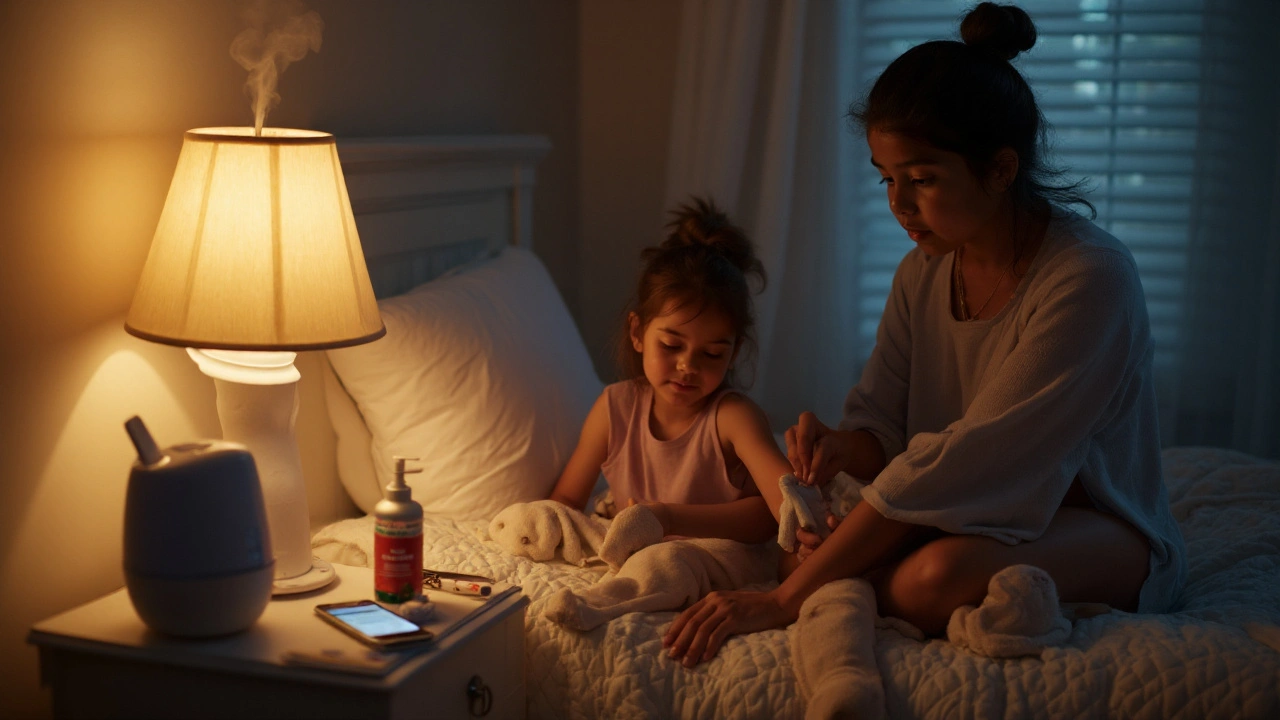A clear UK parent guide to kids’ itching: quick relief, top causes, safe treatments, and red flags. Evidence-backed tips you can use tonight.
MoreEczema in Children: What Every Parent Needs to Know
Seeing your child scratch constantly can be heartbreaking. Eczema, also called atopic dermatitis, is the most common reason kids get itchy skin. It isn’t life‑threatening, but it can mess with sleep and mood. Below are clear steps you can take today to calm flare‑ups and keep the skin healthier.
Why Does Eczema Appear in Kids?
Eczema usually shows up before age five. Genetics play a big role – if Mom or Dad had eczema, asthma, or hay fever, chances are higher. The skin barrier is weaker, so moisture leaks out and irritants slip in. Triggers include dry air, certain soaps, wool clothing, pollen, pet dander, and even stress.
Everyday Care That Actually Works
Moisturize right after a bath. Use a thick cream or ointment (think petroleum‑jelly style) while the skin is still damp. This locks in water and reduces itching. Do it at least twice a day, even when there’s no flare‑up.
Pick gentle cleansers. Skip harsh soaps; choose fragrance‑free, dye‑free body washes made for sensitive skin. Keep baths short (under 10 minutes) and water lukewarm—not hot.
Dress smart. Soft cotton is best. Avoid wool or synthetic fabrics that can rub and irritate. When outdoors in cold weather, layer with breathable materials to keep the skin from drying out.
Control the environment. Use a humidifier during winter to add moisture to dry indoor air. Keep bedroom temperature cool; heat can make skin itchier.
Watch food triggers. Some kids react to eggs, dairy, or nuts. If you suspect a food link, talk to a pediatrician before removing anything from the diet.
Use anti‑itch tricks. A cool compress for a few minutes can calm an acute itch. Over‑the‑counter hydrocortisone cream (1%) is fine for mild spots, but don’t use it on large areas without doctor advice.
When to Call the Doctor
If your child’s skin is oozing, crusty, or spreading quickly, schedule a visit. A dermatologist may prescribe stronger prescription creams (like mid‑strength steroids) or non‑steroid options such as calcineurin inhibitors.
Persistent eczema that interferes with sleep or causes infections (redness, fever, pus) also needs professional care. Sometimes a short course of oral medication helps reset the skin’s response.
Long‑Term Strategies
Consistency beats occasional effort. Keep up with daily moisturization even when the skin looks clear – it prevents future flare‑ups. Track triggers in a simple notebook: note foods, weather changes, and new products. Over time you’ll spot patterns that help you avoid trouble spots.
Remember, every child is different. What soothes one kid might irritate another. Stay patient, stay observant, and use these practical tips as your starting point. With steady care, most kids see big improvements in their eczema symptoms and get back to playing without constant scratching.

